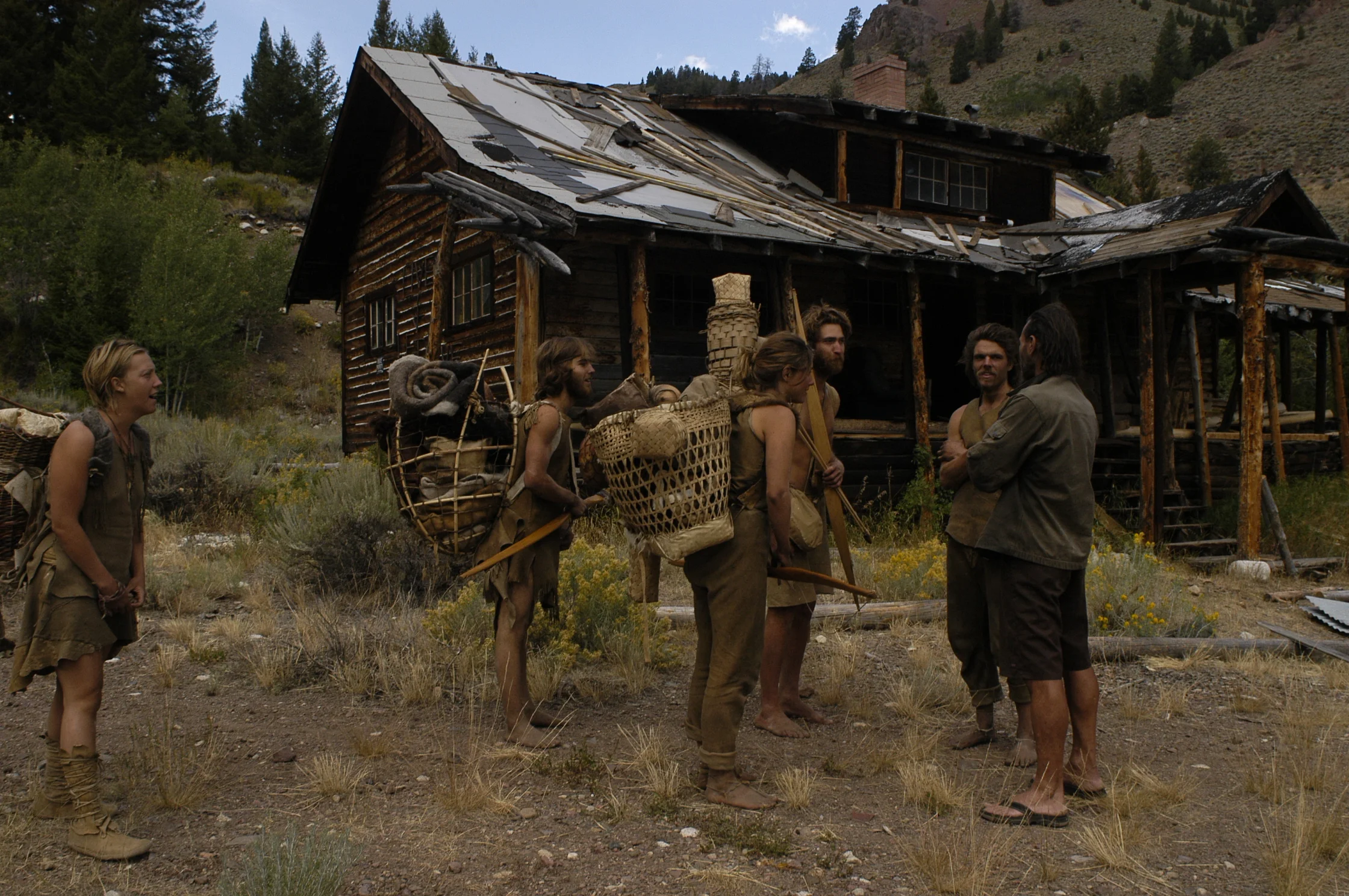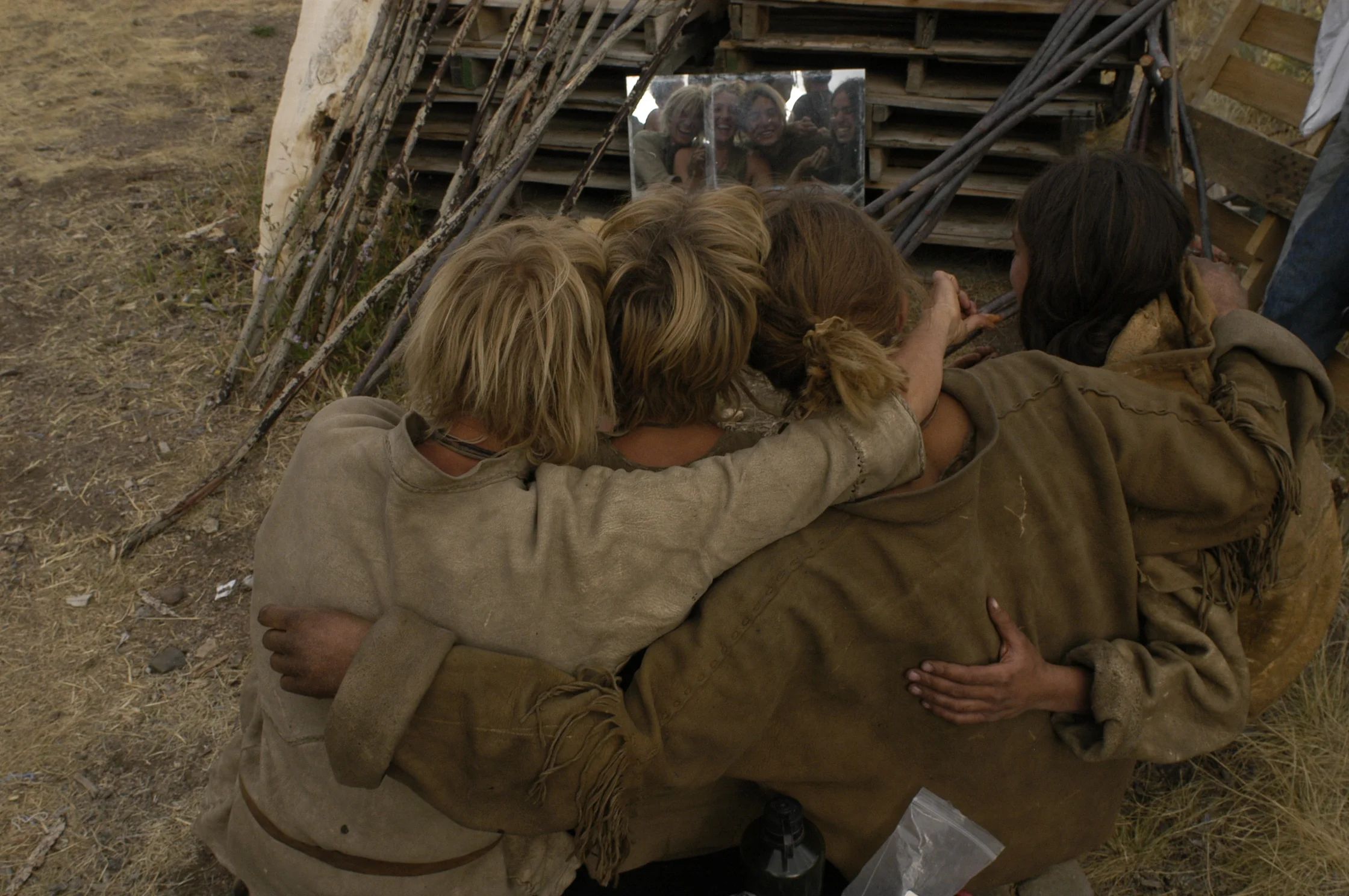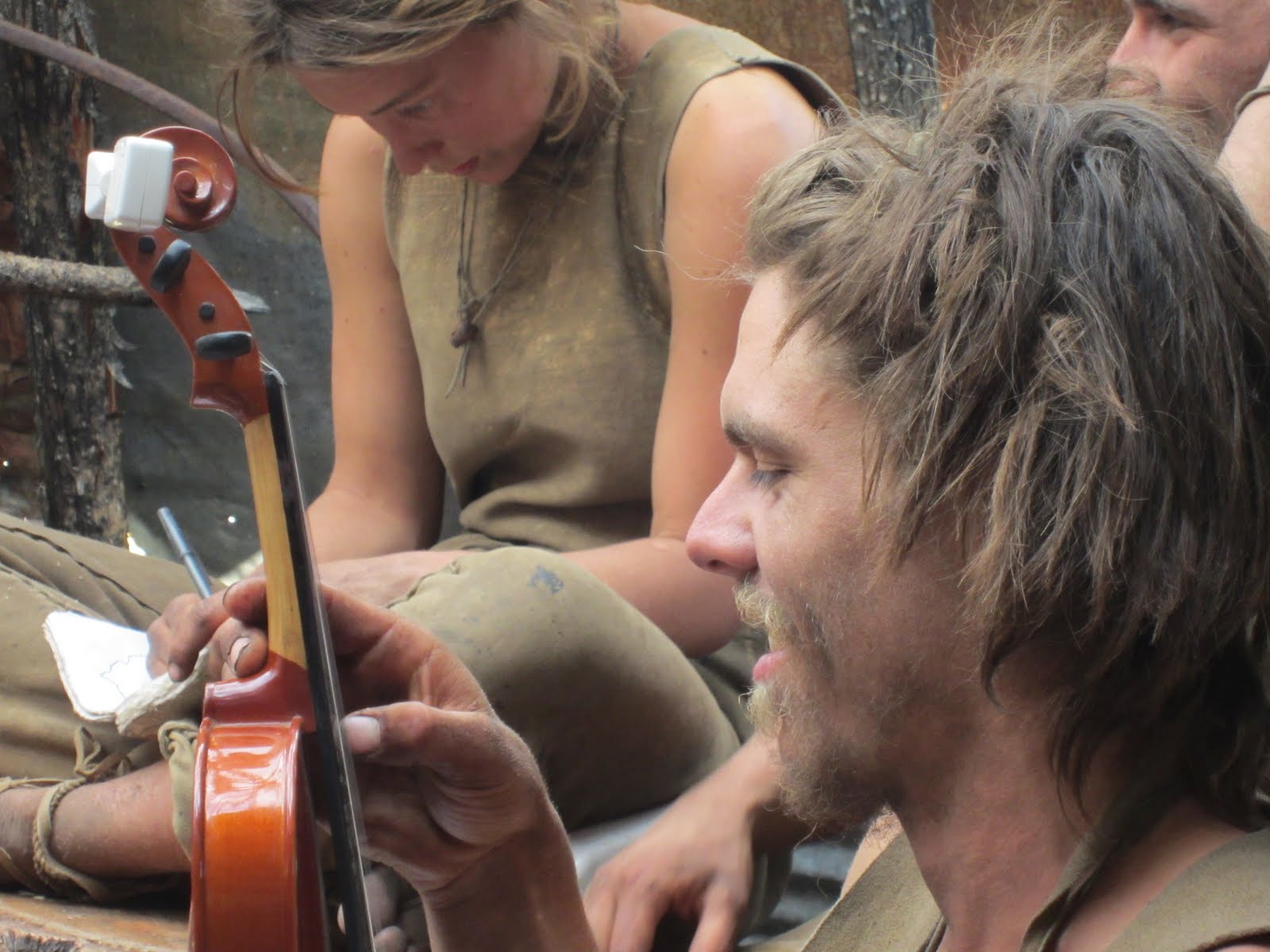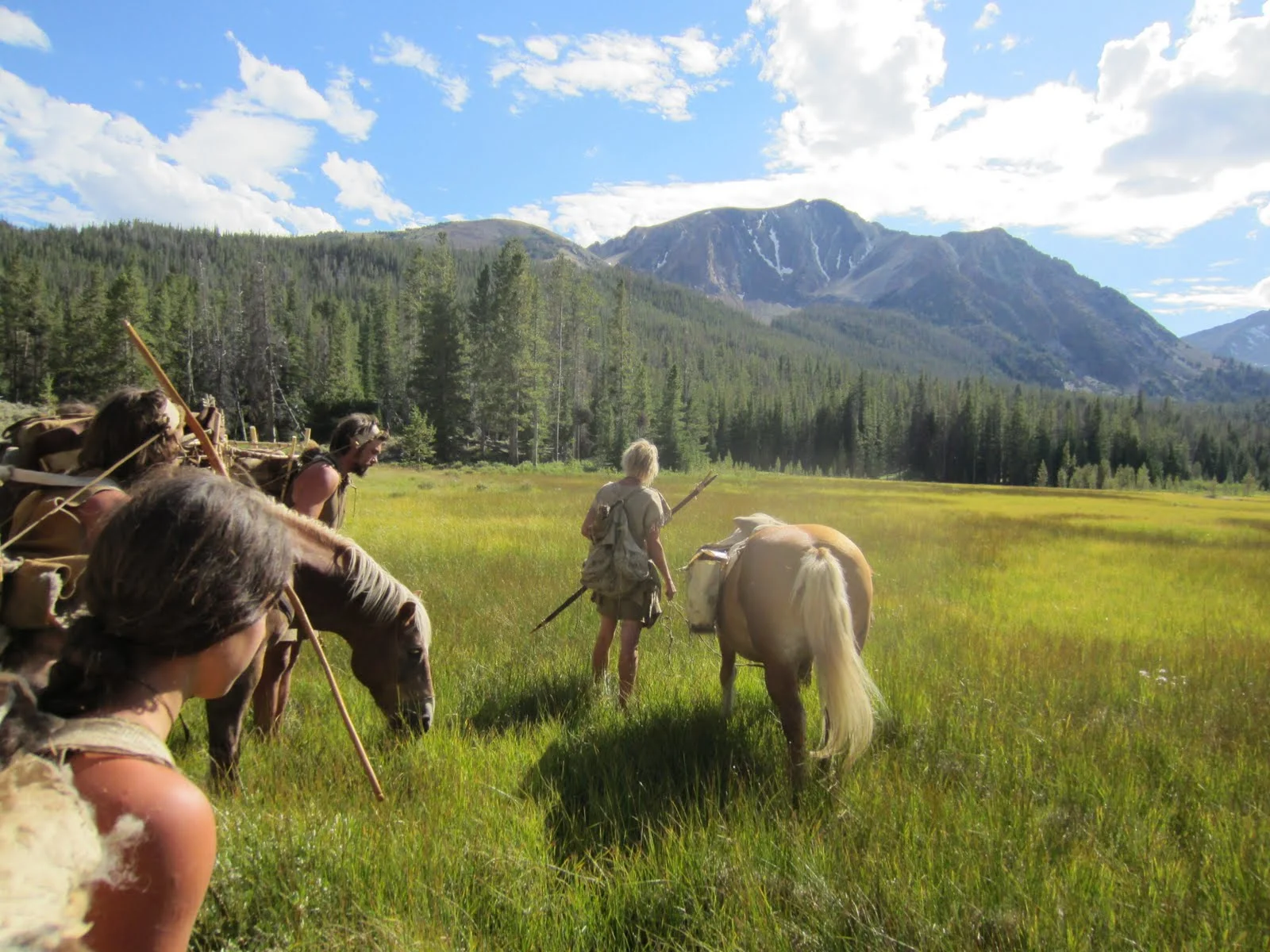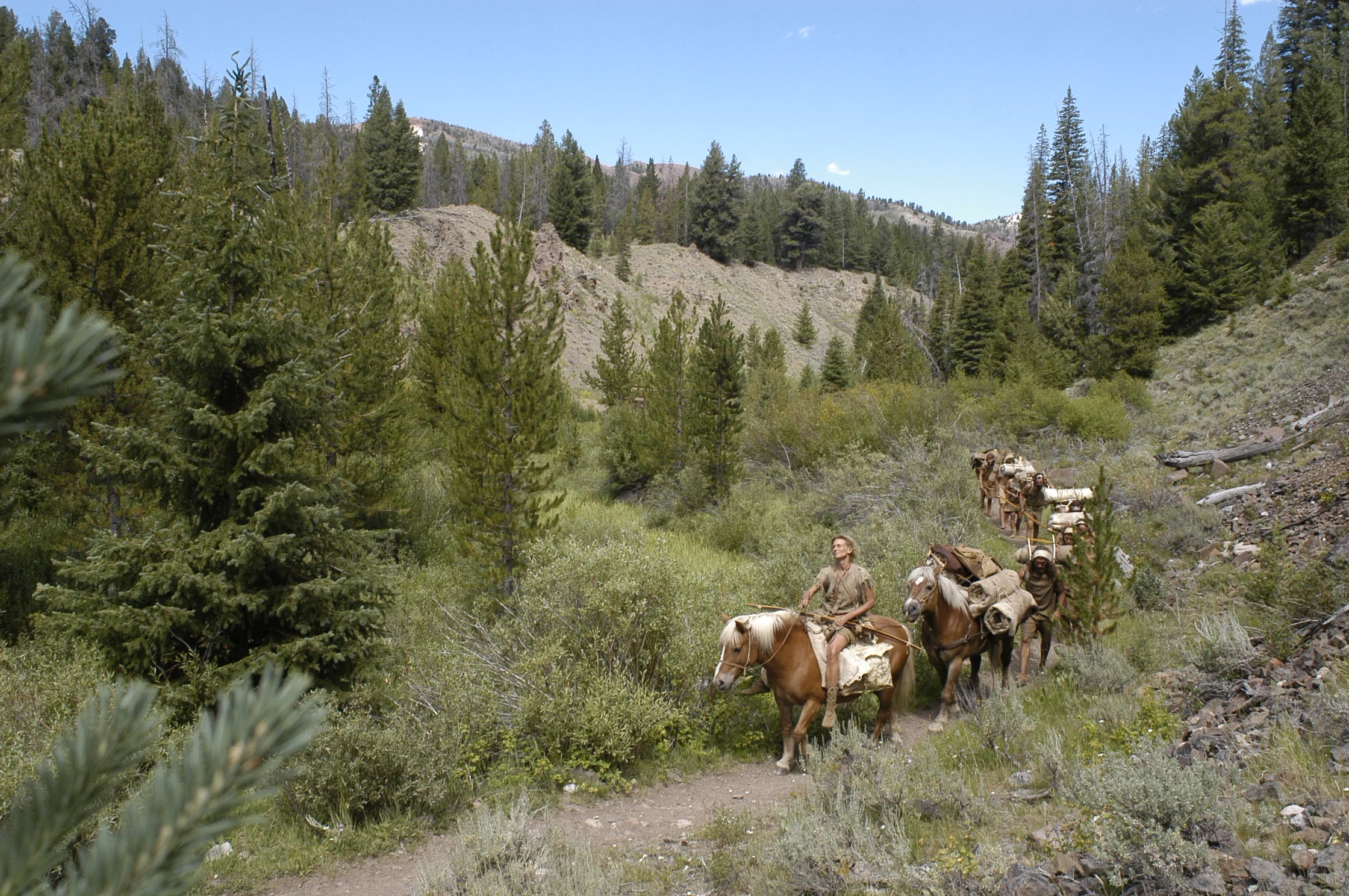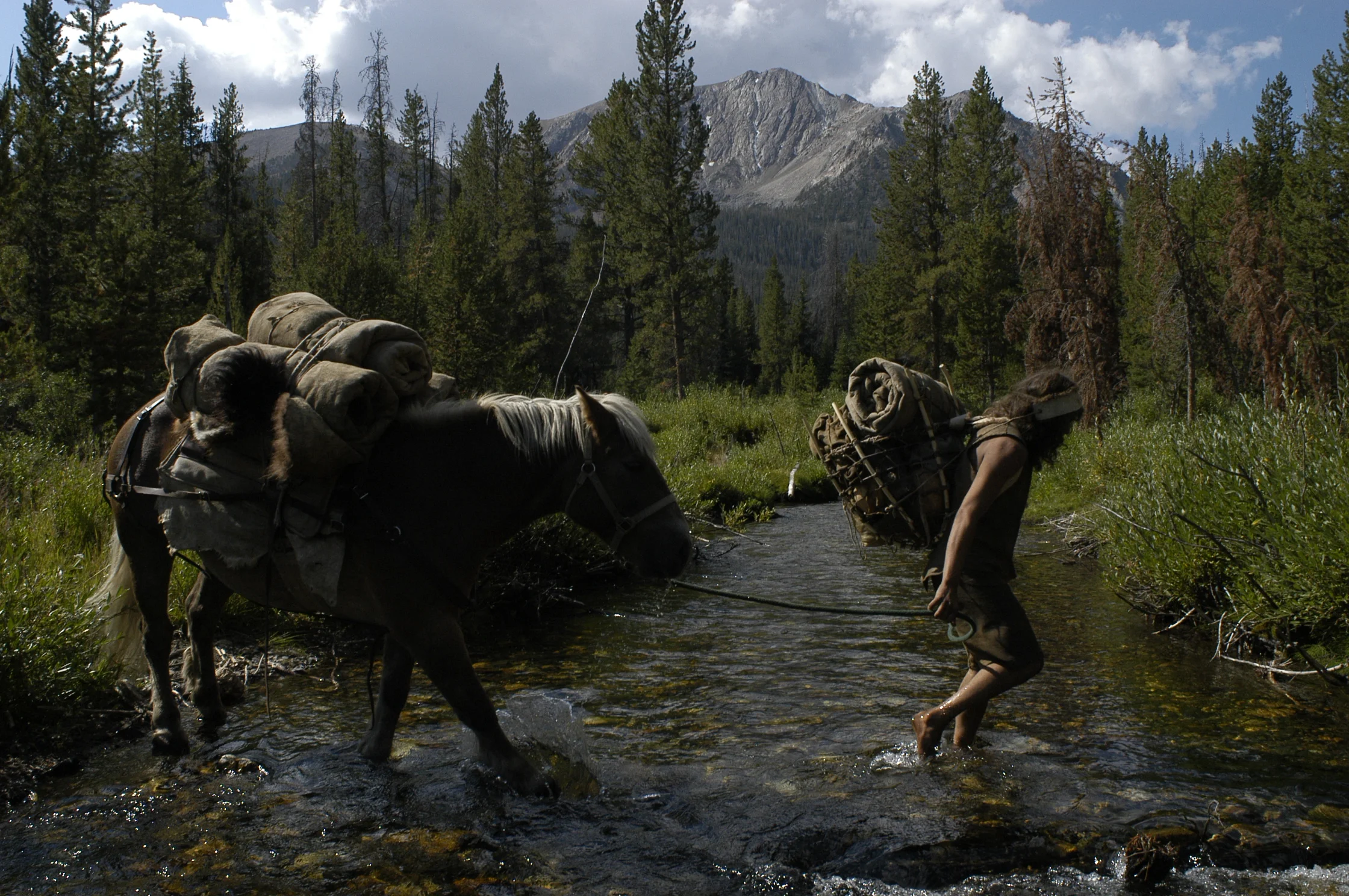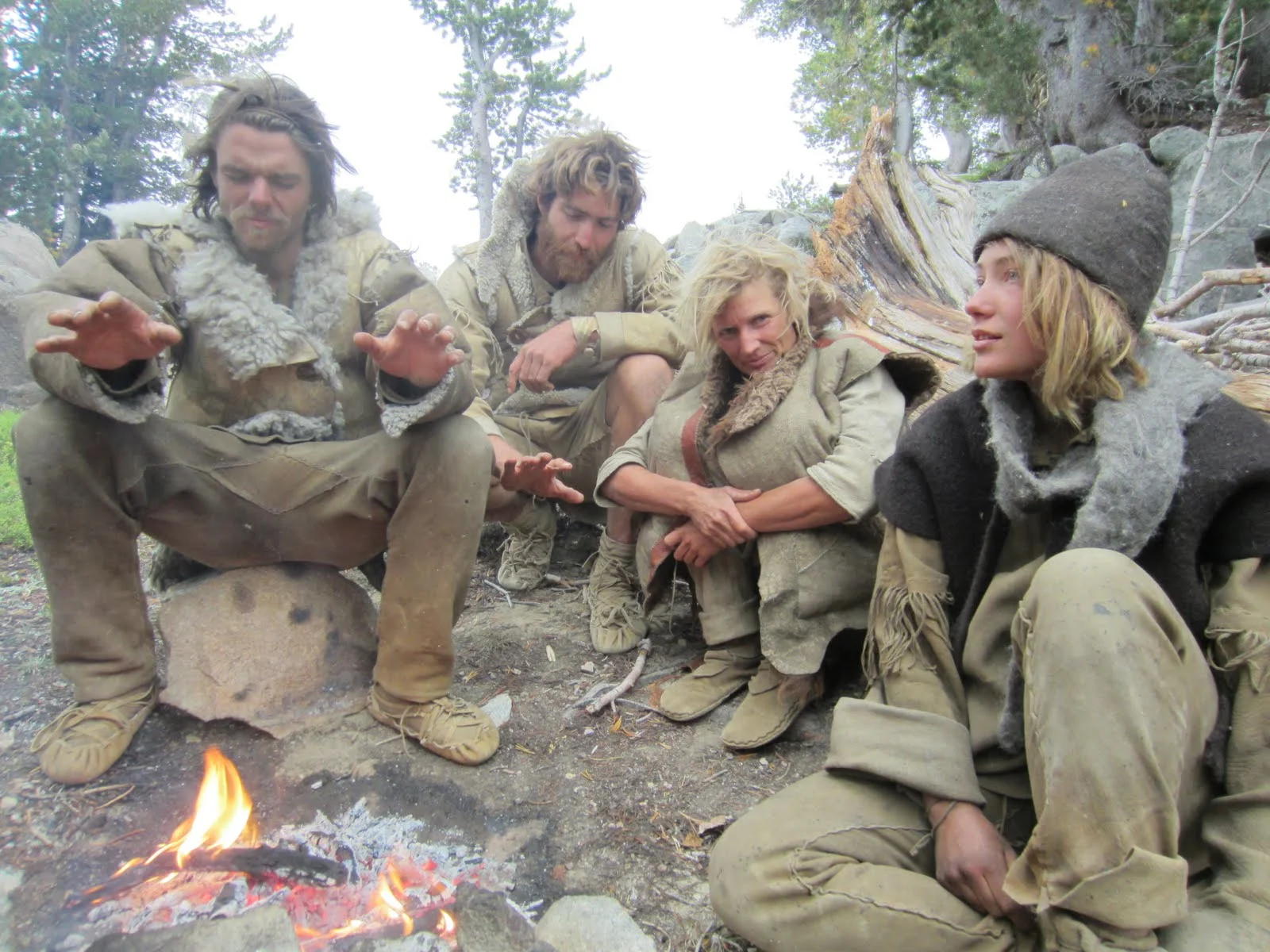
WHITE CLOUDS
A hunting project
The making of LIVING WILD -
A film by Eric Valli

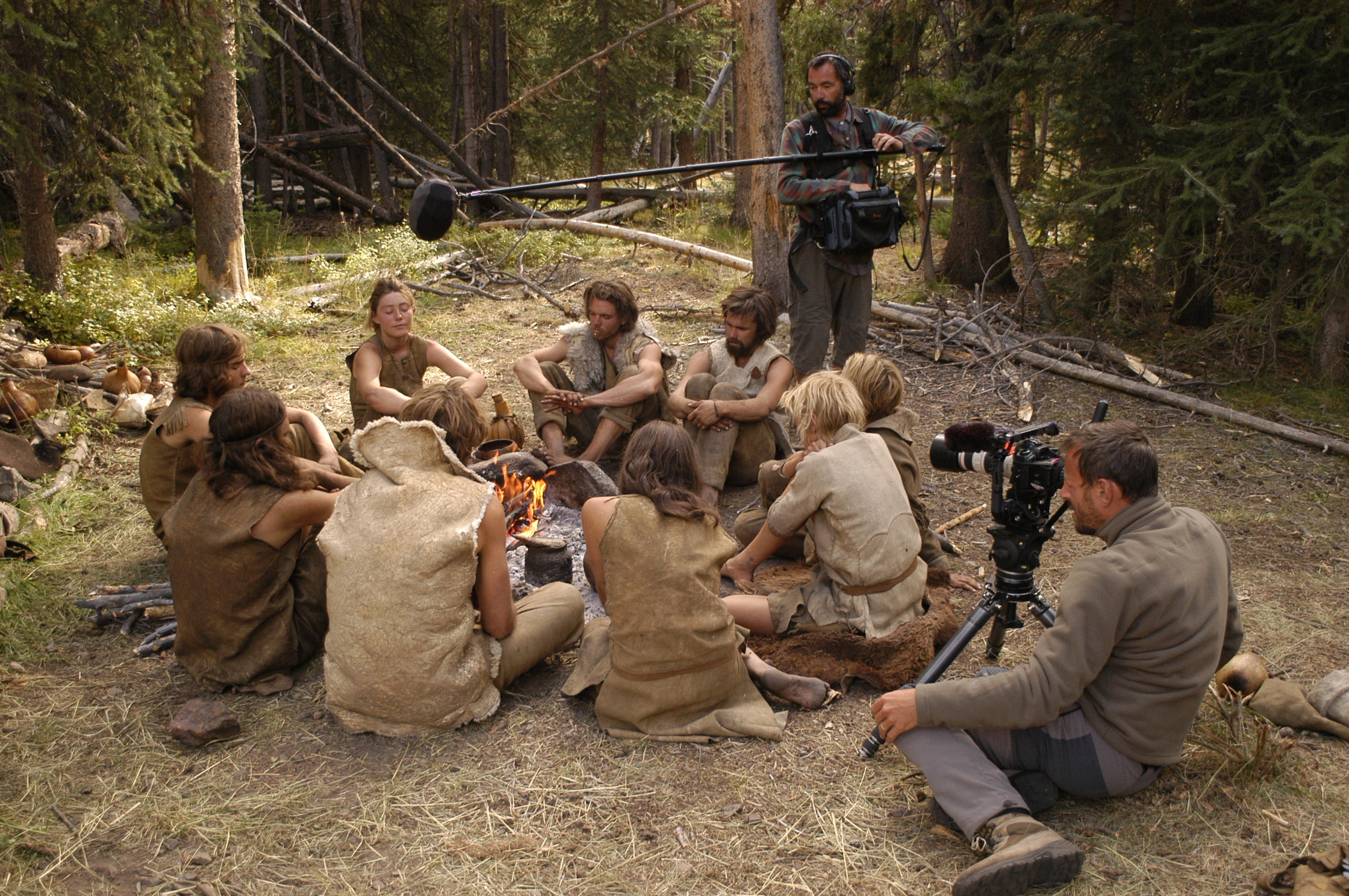

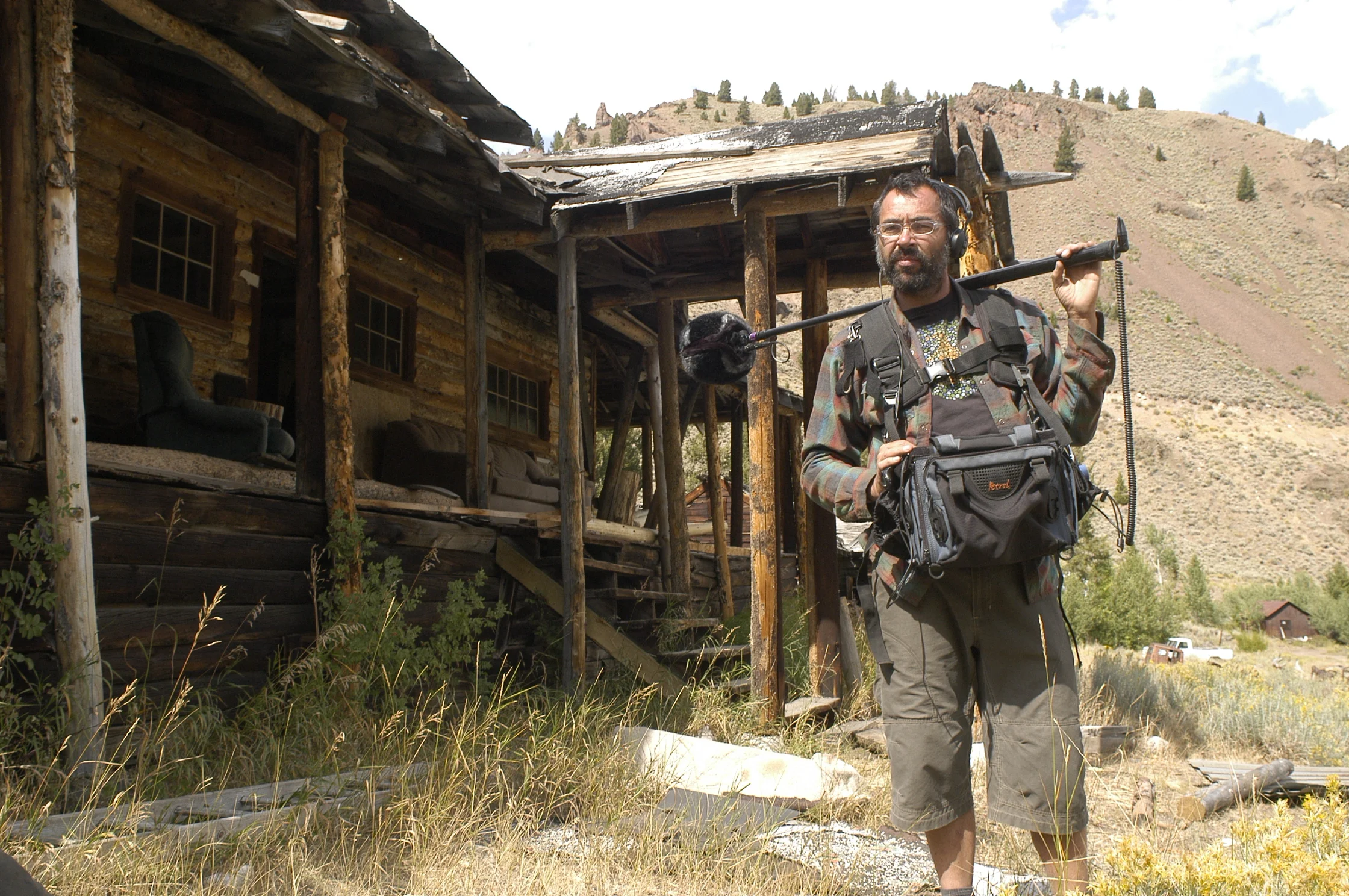

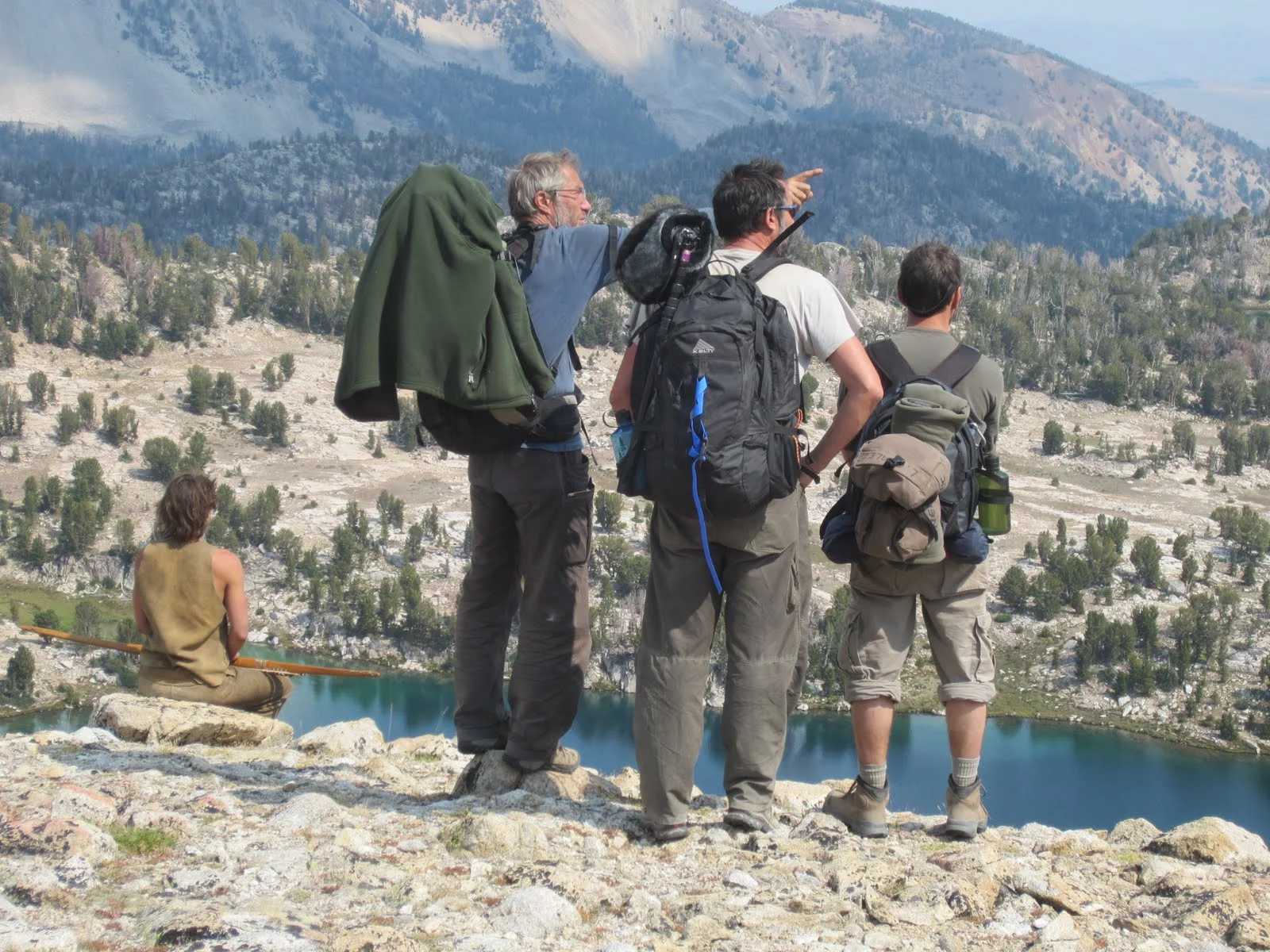
IRA'S STORY 2011
Here I sit once again in the Twisp library, the sun high in the sky and the apples ripening on the trees here in the beautiful Methow valley. As I write this my friends Eric, Laurent, and Denis are jumping around the place with their camera and sound equipment staging shots of Lynx and I typing away, our reentry to the modern world.
So, we drove to central Idaho exactly a month ago, spent a few days exploring the country that was available to us according to the permits we had, and finally began our walk up into the White Cloud peaks on the 24th of August. As we hiked barefoot up the trail with our packs laden down to 70 pounds with all our warm gear and dried food, the film crew kept asking us to stop, to wait, to walk back and pass by a certain bit of scenery again, and finally to walk back and forth across a big wet meadow just as we were almost at our base camp. It became apparent that as much as we we were there to experiment with stone age living skills, we were also there to make a film. So the tone was set for our three weeks in the mountains. We made camp in a large meadow a few miles walk from a series of high mountain lakes. Elk and deer trails crisscrossed the forest all around, herds passing by our camp in the night bugling and making enough noise to keep me awake a few nights. The first week was spent exploring the land and settling into our camp. With the second week hunting season began, and our attention shifted towards hunting. Roaming the land following fresh trails, setting up blinds along well-used trails and sitting morning and evenings waiting for someone to pass by. With the third week, hunting season continued but our enthusiasm and determination waned, there was a fishing trip up to the high country lakes, and we began our preparations to leave.
I don't quite know where to begin, or what to tell. No one in our group created any garbage the entire time we were out, a fact that slipped by unnoticed until somewhere in the second week. I wasn't very aware of which day it was, or how long we had been out, until the last few days of our trip. During the first few days I didn't even notice the transition; the fact we were living with no modern gear didn't seem extraordinary or strange at all. I noticed that all summer we had slowly incorporated each new tool or project as we completed them. Once we got there, it seemed perfectly natural to be wearing buckskins, cooking in clay pots over coals, sleeping on sheepskins and under buffalo robes, using stone knives and living outdoors. Which it was, I suppose. The valley we camped in was beautiful, surrounded by steep slopes to the north and south and an array of bare rock peaks and alpine lakes to the west. The first night we were visited with rain. I took shelter beneath a pine, covering our food with my blanket and curling up in my newly made detachable sleeves and sheepskin vest. The next day I set up a little living space by clearing out all the dead brush beneath a thick bunch of spruce, and began exploring. Most days break fast was re-hydrated serviceberries and jerky in buffalo fat broth. I would grab a handful of berry patties and jerky for the day's snacks, and return to camp in the evening for a dinner. Most of the time I would bring my bow as I went wandering, always on the lookout for some small game animal to bring back to camp.
There was great anticipation of hunting an elk, and during the first few days we saw lots of tracks and sign. But without seeing the creatures themselves and having no real experience with them, it was easy to feel like the animals were mythical. After a few days I went out on a wander, following trails and beautiful places until I found a great rock in a flat bit of woodland. I was feeling a bit uncomfortable, noticing that I still felt a bit lost and overwhelmed by a new place and what felt like the endless expanse of new places. I sat for a half hour or so, and set off back towards camp feeling a bit more grounded. The forest was open, full of lodgepole pine, spruce and fir. There was not a lot of ground cover, and half the pines were dead as a result of a beetle infestation in the region. While the valley was nestled in a mountain range whose ridges were covered in sagebrush and surrounded by dry lands, every 100 yards a spring, stream or seep arose from the mountain slope and cut a path downhill. Big boggy patches glowed green in the afternoon sun, my feet squishing into the grass and mud, and I would stop to stoop and cup my hands, drinking from the clear streams. Tiny purple berries called whortleberries were scattered about in patches, their diminutive size made up for by their incredibly sweet and tangy flavor. A common suggestion was that they tasted just like the candy called nerds. Elsewhere there were currants and gooseberries in abundance, the gooseberries tart and bitter, "mountain tomatoes" my friend Robin liked to call them. There always seemed to appear a patch of the low growing green plants, dotted with bright red berries, whenever we were out for a long hike and getting hungry and thirsty.
Anyways, on this day I was wandering down through this forested wonderland towards camp, when I came upon a beautiful pool and wetland. I danced a bit with a squirrel, I with my bow and arrows and it with its reflexes and fast dodges, before discovering some very fresh elk scat. This was the freshest sign I had seen so far, and I was excited. I noted where I was, and began downhill, when I thought I heard a noise in the forest to the west, up valley. I turned, curious, and began stalking slowly in the direction of the sound, which continued. I began to hear the same heavy sound on the hillock 30 yards to the north, and in the brush to the south. I was standing in the open, one foot in the air and bow in hand, when a cow elk walked into the open not more than 8 yards from myself, face to face. I froze, and she froze, unsure if I was there, or if I was dangerous, I imagine. When I noticed the massive size of the animal my first instinct was to leave, quickly. I didn't, and she walked a few more feet, turned, and peed, before catching my scent and jumping away the way she had come. As she moved away the rest of the herd came into view. I counted 10 more animals and heard even more before they all disappeared back the way they had come. I returned to the campfire brimming with excitement and adrenalin, my energy stores having been massively recharged by the encounter. All of the sudden the forest felt alive, and the prospect of taking big game felt much more possible.
We ate pretty well the whole time, but even still everyone's belts were soon too big and the drawstrings were tied tighter. Most nights were spent tossing and turning in a big pile of bodies, sleeping together for warmth. When one person rolled over, we all would roll over. I woke up most mornings a bit tired and stiff, cold in the frost that lay on the grass in the mornings. At first this made me want to stay close to camp. At the very beginning of the hunting season I had an intense experience when I went up to a neighboring meadow where we had placed a blind on an elk trail. This blind was basically a low wall of brush which I sat behind with my bow, waiting for a creature to pass by.
Our friend Matt Graham, who was the most experienced hunter in the group and joined us for the first 10 days of the project, helped us set up the blinds and explained that something like 95% of game killed is taken while sitting in wait. I sat out into the dark and cold, and scarcely had light to make a fire by when I got to my camp(no flashlights!). Fire by friction is infinitely more gratifying when there is a real need for the warmth, and no light or backup to make it with! I slept by the fire and woke up at first light to sit in the blind again, sitting there still in the cool canyon wind with visions of winter dancing through my mind. When I finally stumbled down to my camp around midmorning I had taken a severe chill, and even after sleeping two hours in the sun by the fire under my blanket with all my warm gear on, I still woke up cold. I drank water, and carried my things the half mile back to our base camp, where I spent the day sleeping, sitting by the fire, eating and recovering. It was a scary experience, to be that cold, and it definitely diminished my enthusiasm about sitting in blinds and hunting. The next day I felt tired and considered sitting around camp again, but I felt called to get exercise. I ended up on a long ramble with Robin on to some sagebrush ridges with vast vistas of distant peaks and ridges, wandering past elk wallows, through aspen groves and willow thickets. This long day was full of beauty and warmth, and the open views brought a light feeling to my heart. For the next week, no matter the soreness or tiredness I awoke with, I set out with friends around mid morning on long journeys through the land, snacking on wild foods and looking for small game, exploring and getting the lay of the land.
A month has now passed since we walked down from the home we made in Big Boulder Meadow. Near the trail head was a ghost town of what used to be a silver mining community. We were met there by its lifelong and only remaining resident, a 58 year old man named Ron. He ushered us back to modern foods with two huge pots of stew served up in his corrugated metal tipi; we played music and celebrated, ogling ourselves with fascination and confusion in the mirror that he had leaning against an old shed. We parted ways with the film crew and drove to the beautiful Goldbug hot springs near Salmon, Idaho to soak, relax, and wash. I spent the next two weeks in the northwest at two different primitives skills gatherings. This was a wonderful transition back into wilderness of civilization, surrounded by a community of people who were doing similar things, some of whom had done Lynx' project specifically. Just yesterday I've finally returned to the land that feels like home here in the Ukiah valley of Northern California.

